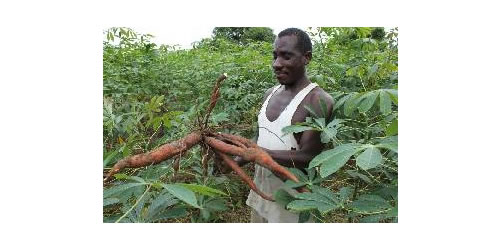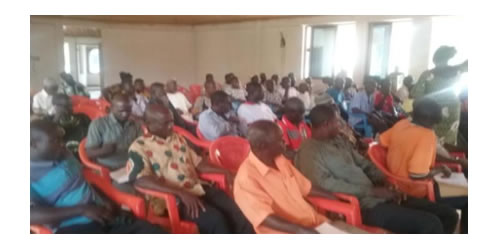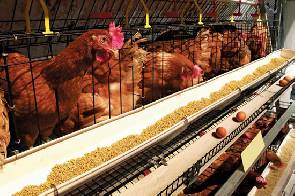CSIR harvests fourth batch of genetically modified rice

The Council of Scientific and Industrial Research (CSIR) has harvested its fourth batch of genetically-modified (GM) rice cultivated at Nobewam in the Ashanti Region for confined field trials (CFTs).
The rice project, dubbed “NEWEST”, started in April 2013 after an approval was given by the National Biosafety Committee (NBC) under the Biosafety Law (Act 831), to regulate the production of GM improved seeds in the country.
Briefing the media after a visit to the CFTs at Nobewam in the Ejisu –Juaben District, the Principal Investigator of the CSIR, Dr Maxwell Darko Asante, said the fourth harvest had revealed a “lead event” in the outcome of the trials, which, he said, would be recommended to the Biosafety Committee to allow it to be grown by farmers in Ghana after testing.
“The NEWEST rice lines had been developed to handle drought, salty soils, lack of fertiliser nitrogen, and also handle climatic change”, he said.
The project is partnered by African Agricultural Technology Foundation (AAFT) in Kenya, Arcadia Biosciences in the USA, the International Centre for Tropical Agriculture in Colombia, the NARO-National Crops Resource Institute in Uganda, the National Cereals Research Institute, Nigeria, and the USAID.
Dr Asante said he was hopeful that the analysis of the harvested rice seeds would be completed before the end of the year.
However, he said, it would take three to five years before the produce would leave the confined field to be produced on commercial scale by conventional farmers.
The Head of Biotechnology Research Programme at the CSIR-Crops Research Institute, Dr Mariam Quain, called on Ghanaians to embrace the use of biotechnology in agriculture production to ensure increased crop yields.
Biotechnology, she said, was a tool employed by scientists to improve the genetic make-up of organisms to produce improved seeds.
She stressed the need for the country to have improved means of production of food in order to meet the increased demand of the populace, coupled with climatic change and increased pressure on limited arable lands.
Dr Quain said the introduction of genetic engineering (GE) would beef up agriculture production, and also improve the livelihood and income of farmers, as well as the country’s economic situation.
“Currently, GE crops are grown on commercial scale in 27 countries, including 19 developing and eight industrial countries,” she added.
She said so far, Burkina Faso was growing GE cotton on commercial scale, which, she said, had enabled them to reduce the application of pesticides on the field from six sprayings to two from planting to harvest, coupled with the quality cotton they harvested.





